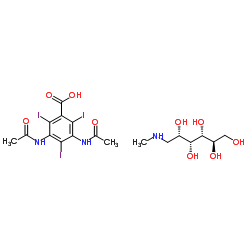Use of the Gastrografin challenge in patients with a history of abdominal or pelvic malignancy.
Mohammad A Khasawneh, Patrick W Eiken, Boris Srvantstyan, Michael P Bannon, Martin D Zielinski
Index: Surgery 154(4) , 769-75; discussion 775-6, (2013)
Full Text: HTML
Abstract
The Gastrografin (GG) challenge was developed to predict the need for operative management in patients with small bowel obstruction (SBO). Although clinical trials have demonstrated that it is an effective diagnostic and therapeutic modality, these studies excluded patients with a history of abdominal/pelvic malignancy. This study aims to examine the outcomes of the GG challenge for patients with a history of abdominal/pelvic malignancies.Institutional review board approval was obtained to review retrospectively patients admitted with SBO in 3 separate categories: Group 1, patients presenting between 2010 and 2012 with SBO who received the GG challenge and had a concurrent history of abdominal or pelvic malignancy; group 2, patients presenting between 2010 and 2012 with SBO who underwent the GG challenge but did not have a concurrent history of abdominal or pelvic malignancy; and group 3, patients presenting between 2007 and 2010 (before our incorporation of the GG challenge protocol) with SBO and a concurrent history of abdominal or pelvic malignancy who did not receive GG . Two distinct comparisons were made. The first analysis was made between groups 1 and 2. The second comparison was performed comparing patients from groups 1 and 3.A total of 237 patients (74 group 1, 83 group 2, 80 group 3) were identified with a mean age of 69.1 years (range, 20-101); 115 were male (48%).There were no adverse events related to GG administration in our study. Analysis of groups 1 and 2 showed similar rates of exploration (25% vs 18%) and complications (32% vs 24%); however, mortality was greater among patients with history of malignancy at 12 months (26% vs 7%). Both groups had similar readmission rates for SBO, as well as exploration upon readmission. Analysis between groups 1 and 3 showed that the need for operative exploration at index admission was less in patients who underwent the GG challenge (26% vs 41%); however, hospital duration of stay was similar (8 vs 9 days). There was no difference in SBO recurrence at 12 months (28% vs 26%); however, mortality was significantly greater among patients not receiving GG (26% vs 41%).The GG challenge was safe and effective in patients presenting with SBO and a history of abdominal or pelvic malignancy. As a result, GG has the potential to improve these terminal patients' quality of life.Copyright © 2013 Mosby, Inc. All rights reserved.
Related Compounds
| Structure | Name/CAS No. | Molecular Formula | Articles |
|---|---|---|---|
 |
Diatrizoate Meglumine
CAS:131-49-7 |
C18H26I3N3O9 |
|
In vitro immunomodulatory effects of 5-amino-3-methyl-4-isox...
2014-04-01 [Immunopharmacol. Immunotoxicol. 36(2) , 150-7, (2014)] |
|
A misguided 'pill in the pocket' approach with flecainide le...
2012-01-01 [BMJ Case Rep. 2012 , doi:10.1136/bcr-2012-006868, (2012)] |
|
The effect of 5-amino-3-methyl-4-isoxazolecarboxylic acid hy...
2015-04-01 [Immunopharmacol. Immunotoxicol. 37(2) , 148-57, (2015)] |
|
Bone metastases in castration-resistant prostate cancer: ass...
2014-04-01 [Radiology 271(1) , 220-9, (2014)] |
|
Apertures in the Clostridium sporogenes spore coat and exosp...
2015-10-01 [Food Microbiol. 51 , 45-50, (2015)] |